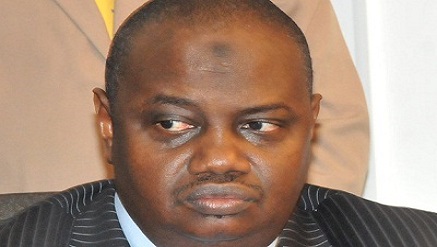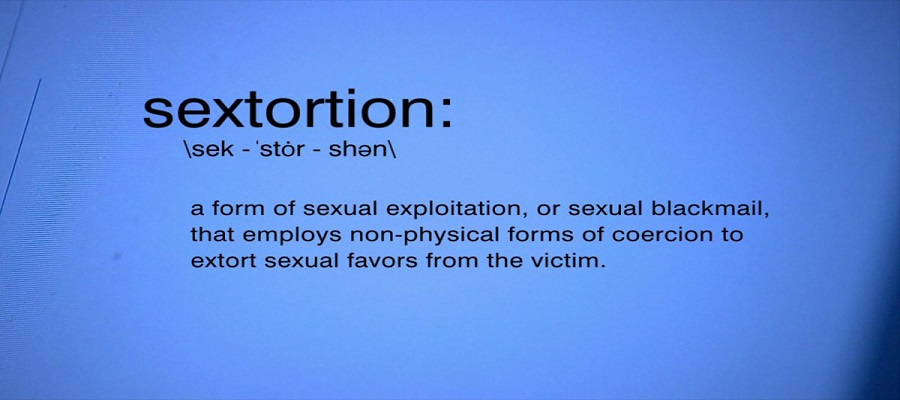General News
Nigeria, Others ‘Lose $1 Trillion in Dirty Money’

Developing countries are losing nearly $1 trillion to crime and corruption, with the disappearance of dirty money hitting some of the world’s poorest regions hardest, a new report has found.
Sub-Saharan Africa suffered the biggest loss as a share of its economy, with the disappearance of dirty money averaging 5.5 percent of GDP.
Nigeria and South Africa were among the top 12 nations with the largest volumes of illicit outflows.
A record $991 billion in unrecorded funds left 151 developing and emerging economies in 2012, up nearly 5 percent from a year earlier, a US-based watchdog that exposes financial corruption said on Monday.
Global Financial Integrity (GFI) found that, between 2003 and 2012, the estimated amount of illicit funds shifted from developing countries totalled $6.6 trillion and rose at an inflation-adjusted 9.4 percent a year – roughly double global GDP growth.
This is a trillion dollars that could have contributed to inclusive economic growth, legitimate private-sector job creation, and sound public budgets
GFI President Raymond Baker said the estimated losses were conservative but were still more than 10 times the total amount of foreign aid these countries received. He called the growth rate “alarming”, having surged from about $297 billion in 2003.
“Illicit financial flows are the most damaging economic problem plaguing the world’s developing and emerging economies,” Baker said in a statement.
“It is simply impossible to achieve sustainable global development unless world leaders agree to address this issue head-on.”
China, Russia, Mexico, India, Malaysia saw the largest outflow of dirty money – the proceeds from shady business, crime and corruption – over the decade and also in 2012.
Sub-Saharan Africa suffered the biggest loss as a share of its economy, with the disappearance of dirty money averaging 5.5 percent of GDP. Nigeria and South Africa were among the top 12 nations with the largest volumes of illicit outflows.
Asia was the region of the developing world with the greatest flow of dirty money over the decade, accounting for 40.3 percent of the world total, driven by China.
But the researchers found growth of illicit flows was faster in other parts of the world, particularly in the Middle East and North Africa and in sub-Saharan Africa, where the growth was seen at 24.2 percent and 13.2 percent respectively.
Why does the international banking system make it so easy for corruption to flourish?
The GFI research found fraudulent mis-invoicing of trade transactions was the most popular method to move money illegally and accounted for nearly 78 percent of illicit flows in 2012.
Money is moved overseas through trade mispricing by fraudulent underbilling or over-invoicing for goods to avoid tax or to hide large transfers.
One of the report’s authors, GFI’s Joseph Spanjers, said the trillion dollars lost from these economies in 2012 could have been invested in local businesses, healthcare, education or infrastructure.
“This is a trillion dollars that could have contributed to inclusive economic growth, legitimate private-sector job creation, and sound public budgets,” he said.
GFI called for the UN to next year include a target to halve all trade-related illicit flows by 2030 as it negotiates a new set of global goals, the Sustainable Development Goals, to replace the Millennium Development Goals.
General News
Afe Babalola University Partners with New Horizons to Integrate 4IR Skills into Academic Curriculum

The institution has been lauded for its rapid ascent in academic rankings and its dedication to producing socially relevant graduates since its establishments in 2009 by legal luminary Aare Afe Babalola. It has consistently demonstrated excellence in education and research, and has been recognized as Nigeria’s best university for three consecutive years.

Deputy Director, ICT, Afe Babalola University (ABUAD), Ado Ekiti, Muyiwa Oladimeji (left); Vice Chancellor,
Prof. Smaranda Olarinde; Managing Director, New Horizons Nigeria, Tim Akano and the University Bursar,
Pastor Dupe Babatola, during the signing of Memorandum of Understanding between New Horizons and the varsity for the integration of 4IR skill sets into ABUAD’s academic curriculum in Ado-Ekiti, Ekiti State.
Afe Babalola University has entered into a strategic partnership with New Horizons Nigeria to integrate Fourth Industrial Revolution (4IR) skill sets into its academic curriculum. This collaboration aims to empower ABUAD students with globally relevant competencies in Artificial Intelligence (AI), Internet of Things (IoT), Blockchain, 3D Technology, and the Metaverse, Web 3.0, Full Stack, Cyber Security among others. By embedding these cutting-edge technologies into its programs, ABUAD reinforces its commitment to producing graduates who are not only job-ready but also poised to be innovators and wealth creators in the global tech ecosystem.
The Memorandum of Understanding (MoU) was signed by Prof. Smaranda Olarinde, Vice Chancellor of ABUAD, and Mr. Tim Akano, CEO of New Horizons Nigeria. The University Bursar Pastor Dupe Babatola, and Mr. Muyiwa Oladimeji, the Deputy Director of ICT were also present at this meeting.
According to Prof. Olarinde, she stated that the partnership aligns with ABUAD’s vision of fostering innovation and excellence and by integrating 4IR skills into the academic curriculum, students are being prepared to meet the demands of the modern workforce and to drive technological advancement.
Also, Mr. Akano asserted that “New Horizons is proud to collaborate with ABUAD, an institution that shares its commitment to technological empowerment. Together, we will provide students with the tools and certifications necessary to excel in today’s digital world. It could be recalled that in the first three global industrial revolutions, Africa was not present at the parties of Agric revolution of the 17th century, Industrial revolution of the 18th century, and Information Communication revolution of the 20th century, Africa got late to the party. This explains the large-scale hunger, poverty, and diseases that Africa is battling with today. We are in a new era, the age of Artificial General Intelligence (AGI). AGI will determine the trajectory of every profession, going forward. Regardless of whatever course or profession one chooses, there is a component of AGI in it that will decide who is a modern lawyer or obsolete lawyer, who is a modern Doctor or Obsolete Doctor, who is a modern Engineer or obsolete engineer, and who is a modern art student or obsolete art student. Any university today that produce graduates without relevant 4IR skills and certifications attached during their undergrad years is producing obsolete graduates. The four major global challenges confronting humanity are not permanent problems but rather TECHNICAL/Technological problems. A case in point was smallpox, which had killed over 400 million people worldwide. However, when Edward Jenner invented a vaccine, using technology, smallpox got killed itself. Therefore, all the key problems in the world today: hunger, poverty, disease, Climate Crisis, Youth Unemployment are all technological problems that need technological solutions. This is why ABUAD’s partnership with New Horizons is necessary, critical and urgent with a view to ensuring that going forward, the ABUAD graduates have what it takes to compete with the Chinese, Americans and Japanese when it comes to 4.0IR innovations”.
This strategic partnership with New Horizons Nigeria signifies a pivotal step in ABUAD’s mission to remain at the forefront of educational innovation, and to ensure that its students are well-equipped to navigate and lead in the evolving technological landscape.
New Horizons Nigeria is Africa’s largest ICT training organization with over 200 training centres in various universities, high schools, and retail locations across Nigeria, empowering over 100,000 students yearly. New Horizons Nigeria is a franchise of New Horizons International, the world’s largest ICT training institute with Head Office in California and offices in 90 countries worldwide. The institution pioneered the integration of International ICT certification into the Nigeria academic curricular twenty years ago and some of the students that passed through New Horizons training in their respective universities are managing global corporations today in Silicon valley and working with global IT giants like Microsoft, MasterCard, Oracle, Google and Amazon among others.
General News
UBA Marks 75 Years of Excellence at 65th AGM

United Bank for Africa (UBA) celebrated its 75th anniversary during its 65th Annual General Meeting, highlighting decades of resilience, innovation, and commitment to service.

Mr. Tony Elumelu, Group Chairman, reflected on the bank’s journey, emphasizing its ability to adapt and transform over three-quarters of a century.
He announced UBA’s impressive financial performance for 2024, including a gross revenue of ₦3.2 trillion and profit after tax of ₦767 billion.
The bank’s total deposits grew by 42% to ₦24.6 trillion, while its loan book expanded by 35% to ₦7.5 trillion.
Mr. Elumelu also addressed UBA’s efforts to meet the Central Bank of Nigeria’s directive to increase the minimum capital requirement for international commercial banks.
Following a successful rights issue, UBA’s capital now stands at ₦355.2 billion, with plans to raise the remaining ₦144.8 billion later this year.
GMD/CEO, Mr. Oliver Alawuba, reiterated UBA’s commitment to enhancing customer experience through digital banking.
He highlighted the bank’s focus on leveraging artificial intelligence and advanced technology to serve its 45 million customers across 24 countries more effectively.
UBA’s dedication to environmental stewardship and social progress was evident in its 2024 initiatives, including planting 4,550 seedlings to offset carbon emissions and distributing over 13,000 books through the Read Africa Initiative.
The bank’s efforts were recognized with multiple awards, including “Bank of the Year” in five African countries.
As UBA continues its journey, Mr. Elumelu and Mr. Alawuba expressed gratitude to shareholders, customers, staff, and regulators for their unwavering support.
The bank remains committed to innovation, financial inclusion, and driving economic growth across Africa and the globe.
General News
FBI Sends Team to Nigeria to Track Down ‘Sextortion’ Scammers

Sextortion scams have become so widespread that the Federal Bureau of Investigation (FBI) is sending agents to Nigeria to help track down the perpetrators.

The agency’s “Operation Artemis” has led to the arrest of 22 Nigerians, half of whom are “directly linked” to sextortion incidents in which victims died by suicide.
Sextortion scams often begin on social media, where perpetrators pose as attractive young women to lure victims—typically unsuspecting teenage boys—into sending nude photos or explicit videos.
Once the images are obtained, the scammers turn to blackmail, threatening to leak the content unless the victim pays up.
In some cases, the sextortion results in teenage victims taking their own lives over fear of the nudes leaking.
In Thursday’s announcement, the FBI noted it’s been “observing a significant increase over the last three years in financially motivated sextortion schemes targeting young males ages 14-17, resulting in more than 20 minor victims dying by suicide.”
The agency is also facing a 30% year-over-year increase in sextortion-related tips.
“According to the FBI’s Internet Crime Complaint Center or IC3, there were over 54,000 [extortion-related] victims in 2024, up from 34,000 in 2023,” it said.
“Over the last two years there have been nearly $65 million dollars in financial losses due to this crime.”
In response, the FBI says 55 agency field offices came together to identify “nearly 3,000 victims of financially motivated sextortion,” which led investigators to track down the culprits in Nigeria.
The US has since extradited at least three suspects from Nigeria.
“These subjects will now be held accountable in the American justice system, with more subjects still awaiting extraditions in Nigeria,” the FBI added.

 Telecom3 days ago
Telecom3 days agoMTN Appoints Egerton Idehen as Chief Broadband Officer

 Telecom3 days ago
Telecom3 days agoDigital Realty Expands ServiceFabric to Nigeria, Enhancing Global Interconnectivity

 General News3 days ago
General News3 days agoUBA Marks 75 Years of Excellence at 65th AGM

 Telecom3 days ago
Telecom3 days agoMTN Group Suffers Cyberattack

 Telecom3 days ago
Telecom3 days agoMTN Foundation Launches Skills Academy to Bridge Nigeria’s Digital Skills Gap

 Telecom3 days ago
Telecom3 days agoLegend Internet Plc Makes History as First Indigenous Telecom Firm on NGX
- Telecom3 days ago
Tribunal Upholds FCCPC’s $220m Fine against Meta, WhatsApp

 E-Financial3 days ago
E-Financial3 days agoWorld Bank Predicts Rise of Poverty in Nigeria Despite Economic Growth




















